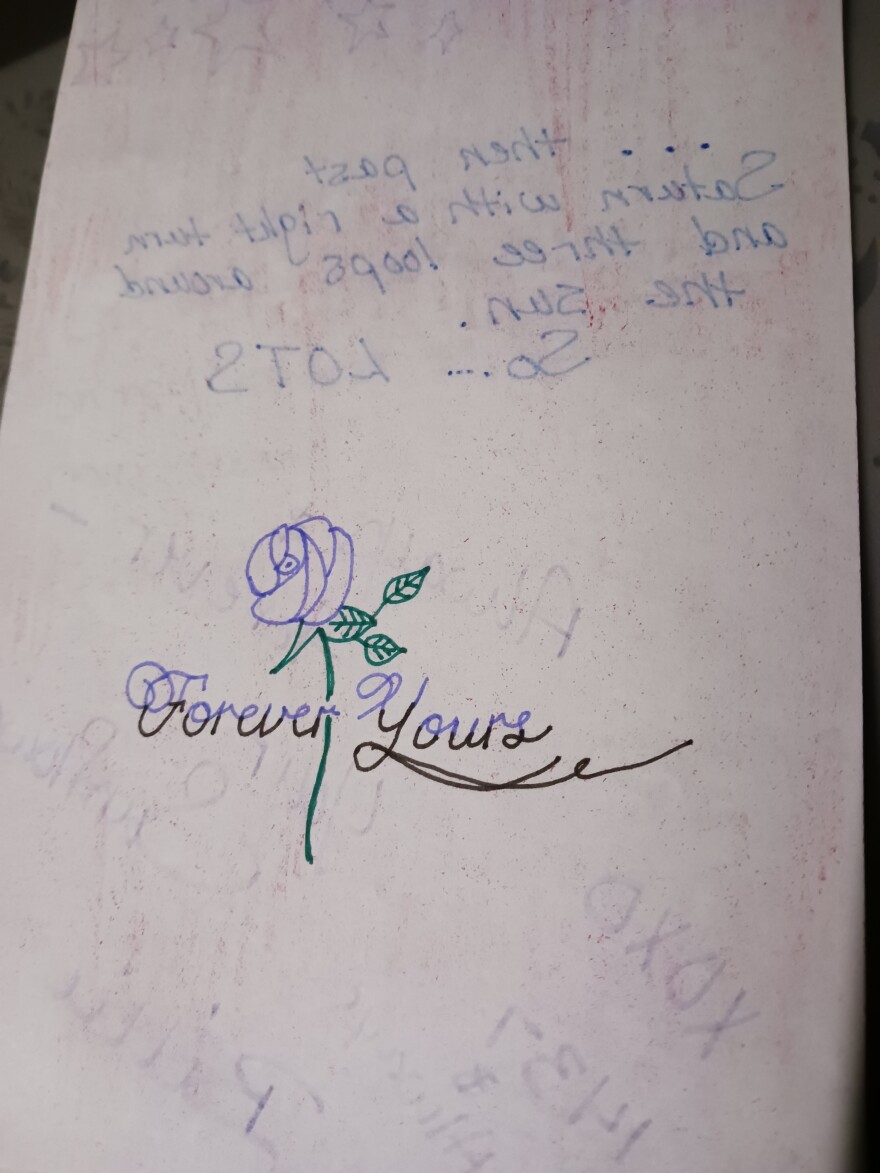One of the ways Billie Hoffman stays connected with her husband Timothy while he’s incarcerated in the Newton Correctional Facility is by making him homemade greeting cards.
"On the back of every greeting card I would make him, I had a rose on there and I'd put on there, 'forever yours,'" she said.
But Hoffman said she’s not sending him those personal touches anymore because of changes to the Iowa Department of Corrections prison mail system.
Since July, all non-legal mail meant for inmates must be sent to a third party company, Pigeonly, in Las Vegas. DOC spokesman Nick Crawford said once it’s received, mail will be opened, screened and scanned.
"That scanned mail is shared electronically with the Department of Corrections through a secure dashboard that allows us to then view that mail prior to a hard color copy of that mail being sent to each institution," Crawford said.
Crawford said inmates will receive only copies of their personal mail. He said the reason for this new policy is the department’s concern about drugs, particularly a synthetic drug called K-2, getting into prisons through the mail. In April 2021, Iowa DOC staff found that 61 inmates in the Clarinda Correctional Facility had consumed, possessed or introduced K-2 into the prison.
But some across the state, including attorneys and the loved ones of inmates, say they’re concerned about whether this policy could have negative effects for people on the inside.
"My first gut instinct, when I heard that Iowa DOC was transitioning to a photocopy mail system, was that it was yet another way in which we deny people that we incarcerate a bit of their humanity," said Alison Guernsey, a professor at the University of Iowa College of Law and director of UI’s Federal Criminal Defense Clinic.

Communication between inmates and people on the outside is valuable in maintaining strong connections, and this new policy chips away at that, Guernsey said.
"There is value and humanity in the physical mail that people receive from the smells of their house, to the ability to touch the words on the page, and maybe feel the cursive of their husband or wife, or to be able to see the crayon drawing that their 7-year-old child made for them," she said.
Many said the implementation of the policy has been confusing.
The third party service, Pigeonly, offers subscriptions to communicate through a phone with loved ones with its service. It advertises that if you want unlimited use of its electronic service you have to purchase a paid subscription.
Eric Mullinex’s wife Jessica was in the Iowa Correctional Institution for Women when the policy changed. He said mail had been one of the most cost effective ways to keep connected. But when the prison told him to check out the Pigeonly website ahead of the change, he was unsure if he needed a paid account to continue to send mail.
"At the least they need to make it more understandable to family members that this is not something that charges and that they shouldn't even be given out that website, just mail the letters there. That whole website thing confused everyone," he said.
Larry Smith and Nancy O’Geary Smith have a son who is incarcerated in Iowa. O'Geary Smith said the new mail system has made it more confusing and difficult to communicate in a system that already has a lot of rules and policies.
"It's very frustrating. They say they want interaction with loved ones, but what they are doing is a contradiction. It is the definite opposite," she said.
Hoffman has opted to use the electronic service since her husband wouldn't be receiving original mail anyway. She said, for her, it's also a little more cost effective for sending photos.
"I have not tried sending him anything through the mail, because it's still, you know, they're going to photocopy it and then send it on. What's the point?" she said.
But Hoffman said it's been much more difficult for her husband to receive mail.
"I mailed him a postcard through the Pigeonly system on July 14, and I mailed them another one on July 18. In the Pigeonly system, it says they were delivered July 21 and 22. He has never ever received them," she said when she spoke to IPR on Oct. 4.
The DOC says an account is not necessary to continue to send mail through the United States Postal Service. People can continue to send mail as long as senders are properly addressing the envelopes with the right address and information and the mail meets the DOC’s guidelines.
Julia Zalenski, an assistant public defender in Johnson County, said the way this change of policy has been communicated and the lack of clarity is only building more distrust in the system.
"It shows a lot of disregard for them as people as members of the community them as members of a family and really just sort of treats them kind of as nothing more than a security threat," she said.
Zalenski said this change reflects the department’s priorities, but questions how officials will balance security and inmates’ welfare in the future.
Copyright 2022 Iowa Public Radio. To see more, visit Iowa Public Radio. 9(MDAxMzc2NzY1MDEyOTc4NzE3NThmMjc5MA004))



